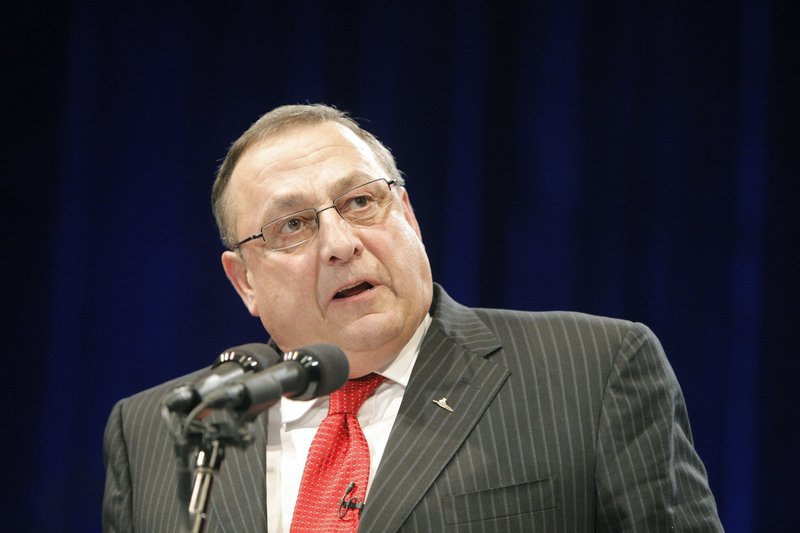At a town hall meeting Wednesday in Franklin County, Gov. Paul LePage said Forbes magazine had told him that welfare and energy costs led to Maine’s unwelcome distinction as the least business-friendly state in the magazine’s annual rankings.
On Friday, Forbes Senior Editor Kurt Badenhausen published a response on Forbes.com, titled, “Gov. LePage Stretches Truth on Forbes Rankings.”
“Sorry, Governor, but I didn’t say any of those things,” Badenahusen wrote. “Welfare? Not even a part of the rankings.
“We should not be surprised at this point that a politician took one piece of information and made a giant leap to fit his particular agenda. … The level of deception and confusion in politics has seemingly never been higher.”
Despite Forbes’ criticism, LePage wouldn’t back down Friday from his comments.
According to his spokeswoman, Adrienne Bennett, Forbes told the administration that Maine has “structural problems.” LePage interpreted that to mean welfare and energy costs — two of the biggest issues on his agenda — she said.
“Structural problems are welfare and energy,” she told The Portland Press Herald. “He is accurate in saying that.”
The flap stems from the governor’s Capitol for a Day event Wednesday with about 100 people in Salem Township. During the event, LePage said he wanted to know why Maine did so poorly in Forbes’ rankings.
“So we asked them,” he said, according to the Lewiston Sun Journal.
“‘They said, ‘You made some efforts and you’ve done some good things in some areas, but you absolutely ignored the structural problems,’ which are our welfare and our energy,” LePage told the crowd. “And they said, ‘Unless you get your fiscal house in order and you address energy, you address workforce development, and you get yourself (so) that you spend within your means, you’re in the cellar.’
“We’re starting out with welfare,” LePage said, “because we’re going broke.”
Badenhausen told the Press Herald on Friday that LePage’s statements are inaccurate.
Badenhausen, who oversees the annual rankings, said he spoke with LePage’s senior economic policy adviser, John Butera, about the rankings before Wednesday’s event. At no point in that conversation did they discuss energy costs or welfare, Badenhausen said.
Asked what the basis was for LePage’s statements, Badenahusen said, “Your guess is as good as mine.”
On Thursday, Bennett gave different explanations to different newspapers.
She told the Sun Journal that the governor meant welfare in general — as in the state’s welfare or Mainers’ welfare — and not the welfare system.
She told the Bangor Daily News that it appeared LePage was quoting Badenhausen, but that wasn’t LePage’s intention.
“I think he started out saying, ‘They said,’ and then he kind of goes to his thoughts, then he goes back to ‘They said.’ It’s just the way he speaks. The more one-on-one time you get with him, you understand these things,” Bennett said, according to the Bangor Daily News.
Badenhausen said Forbes uses 37 metrics in six categories to compile its rankings: business costs, labor supply, regulatory environment, economic climate, growth prospects, and quality of life.
Overall, Maine ranked 50th.
Energy costs are part of business costs, Badenhausen said, but he never told the LePage administration that it needed to lower energy costs to move up in the rankings.
Maine ranked 44th in business costs, 50th in growth prospects, 45th in regulatory climate and 28th in labor supply.
Badenhausen said Butera called him Thursday, “once they realized this was going to be a story,” and asked Badenhausen if he had spoken to any reporters.
“I had already spoken to the reporter when he called,” Badenhausen said, “so he did not try and steer my comments.”
— MaineToday Media State House Writer Susan Cover contributed to this report.
Staff Writer Jason Singer can be contacted at 791-6437 or at:
jsinger@pressherald.com
Send questions/comments to the editors.


